One of my favourite time of the day, aside from having quality time with my family, is when I discuss (read argue) with the PhD students I advise or train.
I am a big fan of feedback, as I believe this is the only way we can learn (aka deliberate practice). So I enjoy being challenged by the researchers as much as I like to challenge them.
This post includes a simple technique to challenge your advisor, it then explains why it is important to do so, and it finishes with how you can apply it to yourself.
Three times why
I have heard about this “technique” from
Ricardo Semler, a genius Brazilian entrepreneur who went against the traditional rules of business to build a company without HR. To challenge the traditional ideas, he often asks three times why in a row.
How many of you already had this kind of discussion with their supervisor? You gave him an article to review and you received it back with a layer of red painting. Since it is time consuming, the supervisor will most probably write very briefly instructions on how to modify the manuscript (or do it for you) and seldom why it should be done this way. Obviously, there are issues like typos and grammar mistakes that should not be discussed but whenever you have a feeling that the correction is not improving your manuscript, just ask why, three times.
If you are sometimes with children, around three years old, you know how it feels to get this question repeatedly. This would be a conversation I would have with my son.
-Colin, please put your toy back in the box before you go to sleep.
-Why Daddy?
-Well, because you need to go to sleep and I don’t want you toy lying around.
-Why don’t you want the toy lying around?
-(Now slightly angry) because I don’t want to see it during the evening.
-(Apparently not seeing that I get angry) why don’t you want to see it, it is so beautiful and you just bought it for me?
-(Sight) go brush your teeth.
Don’t get me wrong, I’m not suggesting to talk to your supervisor like to a three-year-old. Instead, you could have a much more constructive discussion like this one:
-I have seen you suggested to change this figure and add a grid in the background. I’d like to understand why, as this might go somehow against what I learnt in some training. Maybe I got it wrong so I’d like to make sure of the reason.
-The grid would help anyone to find the value of the points you are reporting.
-That’s what I thought, I am happy to add the grid in case this is very important. Still, I’d like to understand why is that better as opposed to what I did where I focused on the main message of the figure.
-Someone might wish to reproduce your data and therefore the noise of the grid would be a price to pay for that.
-Would the option to keep my figure as it is and put the data as supplementary material address your concern?
Most probably the answer will be yes.
Don’t be afraid to challenge your promotor. If they are where they are, they will most probably enjoy those discussions. You might also learn quite a bit.
Good leaders are stubborn and agile
I had a fantastic model with my own PhD advisor. He was stubborn and at the same time agile on vision and ideas. Stubborn meant that if I had a weak opinion against his, it would be easily discarded and I was back to the drawing board. But agile meant that if I had a strong opinion and I could scientifically defend it, he could easily recognise the quality of my arguments and change his mind. I ultimately understood that this is the perfect attitude for an advisor to reach the training objective for PhD students. I think many of the PhD advisors apply this rule, if not deliberately, at least unconsciously.
Actually, this is also an excellent attitude for the PhD student.
Strong opinions loosely held
Why being stubborn in the first place? To avoid inaction, but not only. In research, we deal with an uncertain future. To keep a non-fragile attitude and grow from the process, you need strong opinions. They will inspire people to develop the best arguments to test them.
Of course, and at the same time, your strong opinions should be loosely held. You will learn from the process of realising that what you thought was actually wrong but more importantly you will not prevent yourself from seeing evidence against your opinions (aka confirmation bias).
Use your promotor as part of a useful feedback loop but following the same logic “be your best opponent” and develop arguments against your own opinions. This is something I still struggle with, but the more you do it, the better you become.


